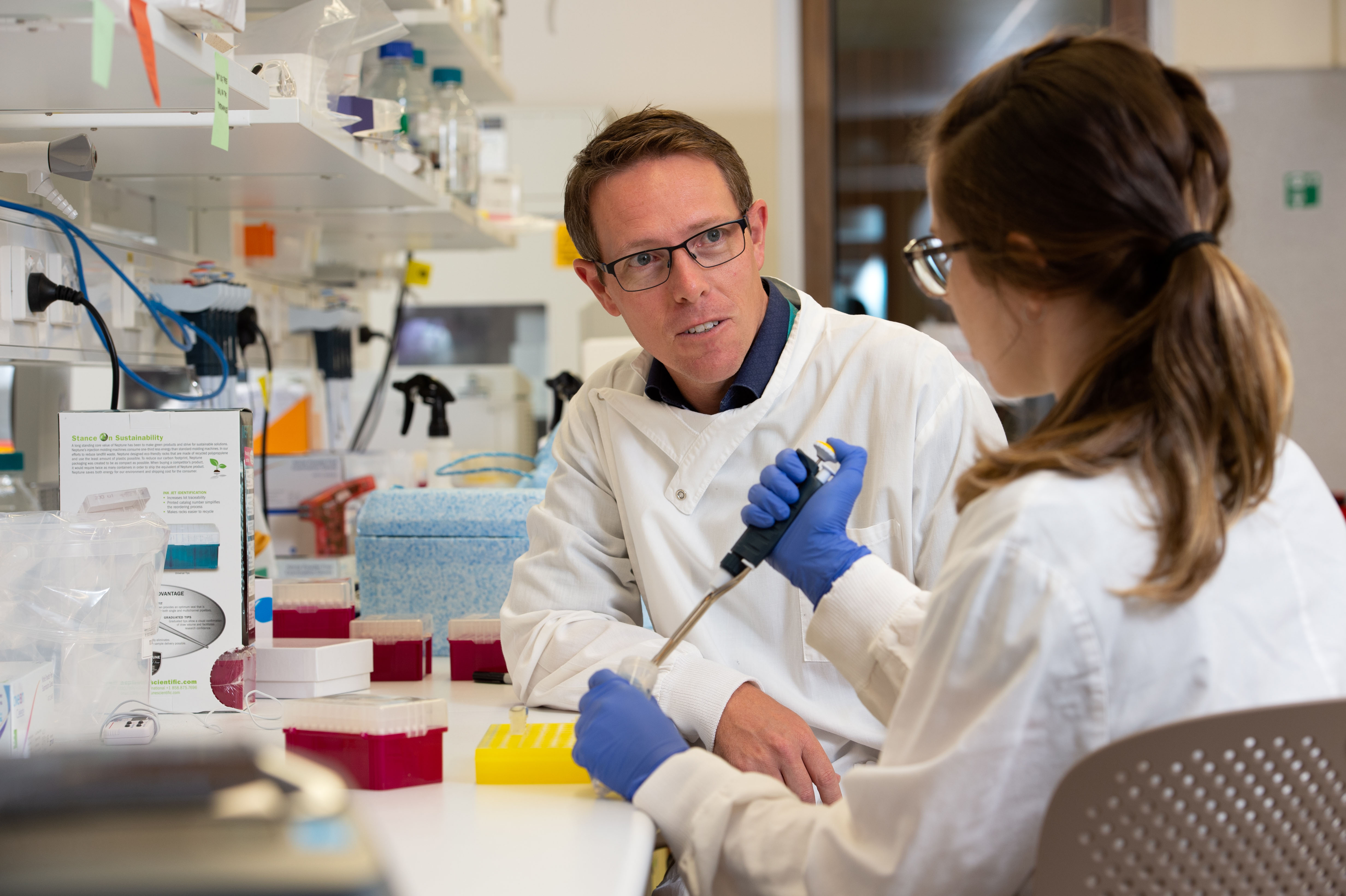QUT has entered a research agreement with US specialist pharmaceutical company Quoin Pharmaceuticals Inc. NASDAQ: QNRX), “Quoin” to investigate a potential treatment for scleroderma, a rare, autoimmune disease.
The agreement will focus research on the small molecule inhibition of the VCAM-1: VLA-4 interaction as a treatment for scleroderma, a condition that affects connective tissue of the skin, blood vessels, internal organs and digestive tract, and has no cure.

QUT immunologist Associate Professor Tony Kenna from the Centre of Immunology and Infection Control and Centre for Microbiome Research said “VCAM-1 and VLA-4 are immune system proteins which bind together and pull white blood cells from the blood into sites of inflammation.
“In most cases this is part of a natural response to infection but in some autoimmune diseases it is part of an immune defect driving inappropriate responses,” Professor Kenna said.

“We are testing a set of inhibitor drugs we designed to block the binding of these two proteins to reduce inflammation in scleroderma.”
QUT health industry engagement director Dr Andrew Leech said “The partnership with Quoin was a crucial step in accelerating the development program for entry into the clinic.
“There is a significant need for more effective treatment options for scleroderma, this program has the potential to offer a disease-modifying option for patients,” Dr Leech said.
Quoin is an emerging specialty pharmaceutical company focused on developing and commercializing therapeutic products that treat rare and orphan diseases. .
Quoin CEO Dr Michael Myers said, “We are very pleased to enter into this second agreement with QUT”.
“In addition to the first program for Netherton Syndrome, this program for Scleroderma furthers our commitment to addressing unmet medical needs for rare disease patients, their families, communities, and care teams.
“We look forward to working with QUT, an institution widely recognized for its excellence in research, and seeing the results of the program as we seek to potentially deliver the first effective treatment for scleroderma, a severe and sometimes fatal disease.”






